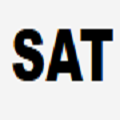Recently, qualitative uncertainty in abstract argumentation has received much attention. The first works on this topic introduced uncertainty about the presence of attacks, then about the presence of arguments, and finally combined both kinds of uncertainty. This results in the Incomplete Argumentation Framework (IAFs). But another kind of uncertainty was introduced in the context of Control Argumentation Frameworks (CAFs): it consists in a conflict relation with uncertain orientation, i.e. we are sure that there is an attack between two arguments, but the actual direction of the attack is unknown. Here, we formally define Rich IAFs, that combine the three different kinds of uncertainty that were previously introduced in IAFs and CAFs. We show that this new model, although strictly more expressive than IAFs, does not suffer from a blow up of computational complexity. Also, the existing computational approach based on SAT can be easily adapted to the new framework.
翻译:最近,抽象论证中的质量不确定性引起了人们的极大关注。关于这一专题的最初工作引入了袭击存在的不确定性,然后引入了存在争议的不确定性,最后将两种不确定性结合在一起。这导致了“不完整论证框架 ” ( IAFs ) 。但是在“控制论证框架 ” ( CAFs) 中引入了另一种不确定性:它包含着与不确定方向的冲突关系,即:我们确信两个观点之间存在攻击,但袭击的实际方向却未知。在这里,我们正式定义了将先前在IAFs和CAFs中引入的三种不同不确定性结合在一起的富集集体。我们表明,这一新模式虽然比IAFs严格地说得更清晰,但并没有受到计算复杂性的打击。此外,基于SAT的现有计算方法很容易适应新的框架。




